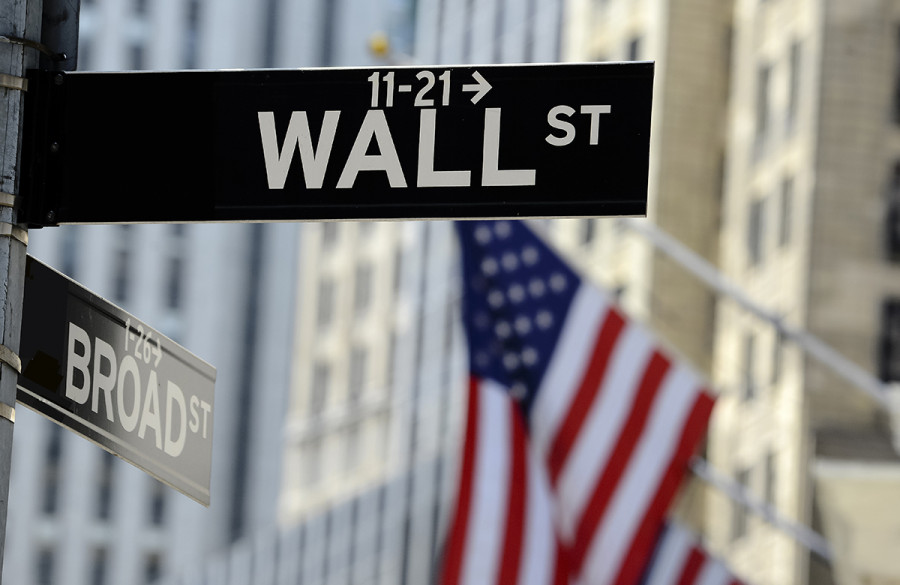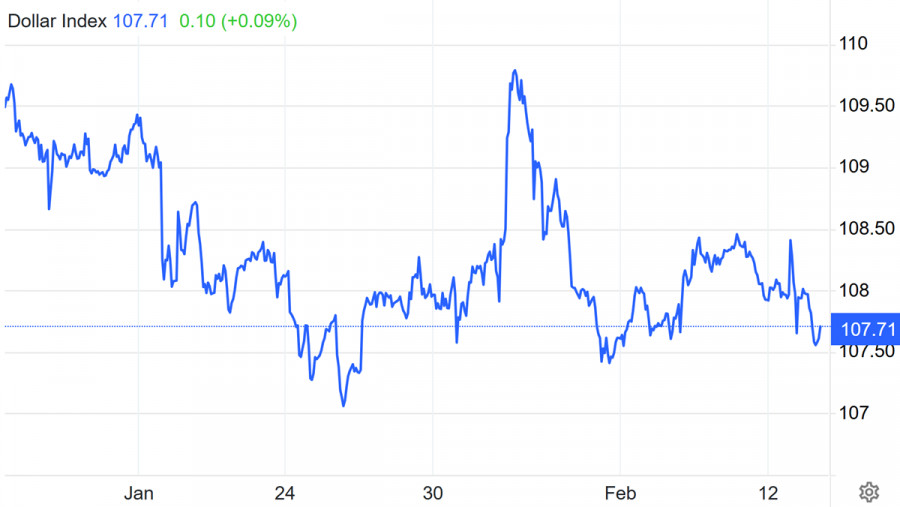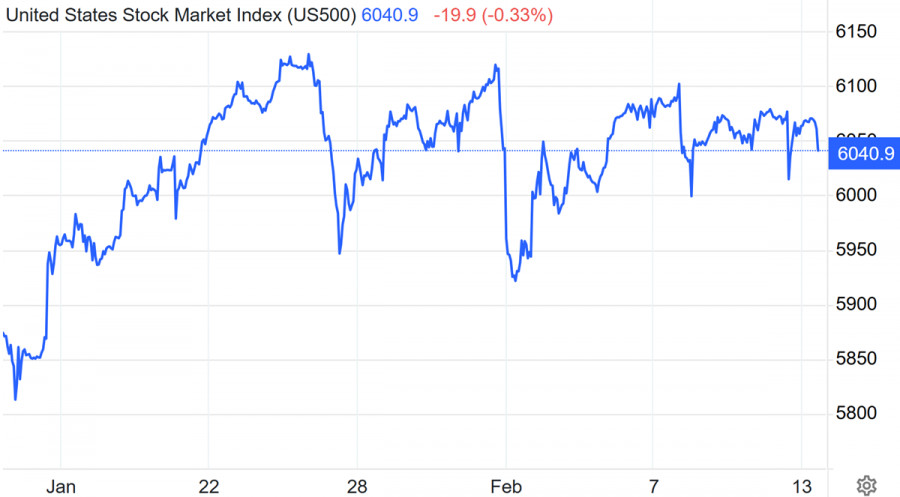The US stock market is attempting to recover after yesterday's losses, but investors remain cautious. Ongoing inflation data and the Federal Reserve's statements regarding a wait-and-see approach to interest rates continue to limit index growth, despite signs of economic resilience.
Geopolitical events, trade tariffs, and the divergence in market dynamics between the US and Europe are still in focus.
On Wednesday, US stock indices closed in negative territory: the Dow Jones lost 0.5%, the S&P 500 fell by 0.27%, while the Nasdaq managed to stay slightly positive, gaining 0.03%. Investors responded to inflation data, which indicated that price pressures remain above the 2% target, raising concerns about the Federal Reserve's next steps.
Fed Chair Jerome Powell emphasized that the US economy remains strong, allowing for a cautious approach without rushing into rate cuts. The Fed is wary of an inflationary spiral amid stable employment and rising wages, which could hinder the stock market's recovery.
Dollar dynamics
In the currency market, the US dollar initially strengthened in response to inflation data but lost ground by the end of the day, trading around 107.50. Market sentiment improved following comments from House Speaker Mike Johnson about possible tariff exemptions, which partially offset concerns over Trump's protectionist policies.
President Trump himself reported a "lengthy and productive" conversation with Vladimir Putin, discussing prospects for ending the war in Ukraine. While Trump has so far refrained from announcing reciprocal tariffs, CNBC sources suggest this could happen as early as his meeting with Indian Prime Minister Narendra Modi.
Corporate sector
In the corporate world, Reddit's stock plunged over 13% following weak user base data, while Dutch Bros shares soared by 25% thanks to strong sales and solid financial performance.
On Thursday, markets anticipate earnings reports from Airbnb, Coinbase, and Palo Alto Networks, as well as the release of the Producer Price Index (PPI), which could provide new momentum to the indices.
Why the market is moving sideways
US stocks are currently trading within a narrow range, even though the economy remains resilient and corporate earnings are strong. In contrast, European indices are reaching new all-time highs almost daily, seemingly ignoring weak macroeconomic indicators.
This difference in performance can be attributed to the growing divergence in monetary policies, which is becoming more evident to investors. Recent data from the FedWatch Tool indicates a 95% probability that the Fed will keep its key interest rate unchanged on March 19. This is a notable increase from a 75% probability a month ago and 83% a week ago. However, despite these expectations, the dollar has received little support and remains around the 107.50 mark—similar to levels seen in December when the Fed first suggested a pause in rate changes.
The S&P 500 has been stuck in a range for two months. Meanwhile, European indices have posted impressive gains: since December 20, the DAX has risen by 13%, the Euro Stoxx 50 has gained 12%, and the UK's FTSE 100 has added 9%. This is happening despite the weak eurozone economy, creating an even starker contrast with US market dynamics.
Despite these comparisons, it would be a mistake to extrapolate the current situation into the future. The US macroeconomic foundation remains significantly stronger, and corporate earnings, unlike in Europe, continue to surprise with positive results.
Many companies ended the fourth quarter with revenue and profit growth, which acts as a stabilizing factor against aggressive selling.
S&P 500
The S&P 500 remains in the 6040–6100 range, showing signs of uncertainty as it balances between inflation fears and expectations of future policy easing.
If the index breaks above 6100, a rise to 6150 is likely. However, a break below 6050 could lead to a decline toward 6000, and if pressure intensifies, further down to 5950, where the 50-day moving average is located.
Nasdaq 100
The Nasdaq 100 continues to struggle with resistance at 21750–21800. If the market manages to break through this zone, a rise to 22000 is possible, but pressure in the tech sector persists. If the index pulls back, it could decline to 21600 and then test 21400, where the 50-day moving average is positioned.














